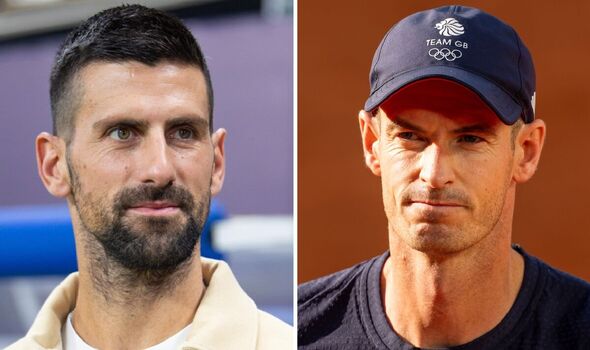
Western sanctions for Ukraine conflict hurt Russian economy, open up rifts
October 15, 2014
Yes, Germans Do Believe in Fiscal Flexibility
October 16, 2014
WEST HAVEN – The recent string of domestic violence cases among NFL players has made for millions of posts on social media, miles of copy in print and online, and endless opinion.
At the University of New Haven on Wednesday, three panelists of note tried to make sense of complex issues and undercurrents.
“Football is a vicious game,” said moderator Allen Sack, a professor of sports management at UNH and a member of Notre Dame’s 1966 national championship team, “and the goal is to dominate the person across from you. It’s easy to slip into thinking that what you do on the field is what you do in your everyday life. You have to be an aggressive human being to survive in the NFL, but there is no reason that has to carry over.”
That set a tone for the hourlong discussion that included Donna Lopiano, former director of women’s athletics at the University of Texas and chief executive officer of the Women’s Sports Foundation; Kendell Coker, assistant professor of psychology and criminal justice at UNH and researcher in the field of domestic violence and trauma; and Lawrence Flanagan, founder of New Tech Haven, who has worked on marketing strategies with MLB, the PGA Tour and Champions League soccer in Europe.
Coker asserted that domestic violence is a problem that cuts across society, and Lopiano discussed the culture of sports that contributes to a lack of respect for women.
“Studies have continuously shown that the rate of violence among people in that age range is lower among athletes, including NFL athletes, than the general population,” Coker said. “But it happens on TV, people see it and believe it’s something associated with football. In actuality, it’s not something associated with football. … When we point the finger at sports we absolve society of its responsibility.”
Said Lopiano: “While football may not be the culprit, the culture of sport probably is. When you look at all-male cultural institutions – military, religion, sport – where male dominance is absolutely solidified culturally, the dominance of males in those contexts leads to lack of respect for women. If I look at an institution and I ask myself the question, ‘Does it respect women?’ I don’t look for assaults. I look at, ‘Do I see women in positions of power? You look at the NFL, you don’t see women in positions of power, in terms of vice presidential status. Do I see the sport promoting itself as an activity for women? I don’t see Major League Baseball or the NFL promoting the participation in those sports for women. … I think there is some relationship between the culture of sport and the way women are treated and respected.”
Flanagan said the media coverage of certain sports, such as the NFL, creates misconceptions.
“What is the effect the media has on society’s perceptions?” he said. “The crux of the matter is, what is it about the NFL that the media has targeted [it]? Because the reality is that there are a lot more NFL players involved in the United Way, in charitable events, involved as mentors, doing good things, but that doesn’t get the coverage.”
NFL commissioner Roger Goodell has come under fire for his handling of domestic violence cases in his league, most notably Ray Rice, who was initially suspended for two games. After tape of the incident, in which Rice knocked his fiancé unconscious surfaced and created a media firestorm, Rice was released by the Baltimore Ravens and suspended indefinitely. In the past, the NFL has generally held off on discipline of players accused of a crime until the judicial process takes its course. Lopiano said this delay to act is unnecessary.
“As a management professional,” she said, “we take care of the policies regarding the rules of the game, we’re very good at that. We’re great within the sport. … But when it comes to misconduct outside the workplace, we’re terrible. We have the right to say, we’re not going to hire felons, we’re going to immediately suspend somebody who has been accused, we can do all those things under administrative law. We’re not doing it, and this is going to be the lesson to be learned. If you care about the brand, your brand, then you’re going to have to take care of your organization inside, and take care of this misconduct outside, too.”
The panel went on to discuss the Hope Solo case and criticized the USA women’s soccer leadership for allowing her to play while her domestic violence case is ongoing.
“She was allowed to start,” Coker said, “and it was an established pattern, to say ‘sure, go ahead and play,’ it does kind of point to society. ‘We don’t have the same types of problems as those other leagues.’ They made that statement. Are we going after the behavior as opposed to the sport? That’s an example where the sport said, ‘it’s not the behavior. It’s our sport that’s so clean. The spotlight should be shined on domestic violence, not on football.”
Society, with its coverage of athletes and celebrities, sends “mixed messages” to young people,” Coker said. “We need to do a better job of [saying] that prevention is the best form of intervention, and start sending the message early about how to act around other people,” he concluded.
Lopiano emphasized the need to educate and to set higher standards for personal conduct and enforce them.
“We have to go beyond just doing nothing,” she said. “We have to educate. What the expectations are so the workplace is defined by respectful conduct. We have the responsibility to address issues of respect for one another. What’s important is that you have a really good policy and a good fair process.”



Luke Humphries comment about Luke Littler says it all after Players Championship glory
Read more